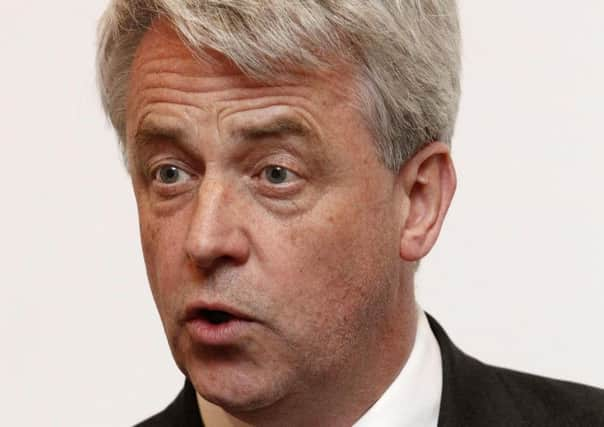UK obesity crisis ‘to surpass doomsday scenario’


The National Obesity Forum says the UK is in danger of surpassing the “doomsday scenario” set out in the 2007 Foresight report for the Government which estimated that 50 per cent of the nation would be obese by 2050, costing taxpayers £50bn a year.
Its call to action is echoed today by organisations including the Association for the Study of Obesity (ASO) and Yorkshire charity Heart Research UK and follows comments from Health Secretary Jeremy Hunt that there needs to be “soul searching” on the nation’s failure to address rising obesity rates.
Advertisement
Hide AdAdvertisement
Hide AdBut the report, released for Obesity Awareness Week, comes just days after former Health Secretary Andrew Lansley dismissed claims that tackling the levels of sugar in UK food would help reverse the nation’s trend to obesity and which likened the nation’s reliance on sugar in foods with smoking.
Mr Lansley, whose formal strategy to tackle obesity in 2011 was derided for pandering to the food and alcohol industry, reiterated the Government’s commitment to voluntary regulation, claiming consumers would not accept a 30 per cent cut in sugar content, adding: “I just don’t think the analogy between sugar and tobacco is an appropriate one.”
NOF health officials are nonetheless urging authorities to use hard-hitting campaigns - similar to those for smoking – to try to increase awareness of the risk of obesity, which includes cancer.
It also called on family doctors to proactively discuss weight management with patients, suggesting GPs should routinely measure children’s height and weight and check adults’ waist circumferences.
Advertisement
Hide AdAdvertisement
Hide AdWarnings have also been included that while fruit juices and smoothies can provide a portion of a person’s daily fruit and vegetable intake, the amount of sugar in them is similar to many fizzy drinks.
“It is entirely reasonable to conclude that the determinations of the 2007 Foresight Report (ie that half the population might be obese by 2050 at an annual cost of nearly £50bn), while shocking at the time, may now underestimate the scale of the problem,” the report says
National Obesity Forum chairman Professor David Haslam said: “Mr Hunt is correct that we are not turning the tide, but the time has long passed for national soul searching. There needs to be concerted action.
“There is a lot more we can be doing by way of earlier intervention and to encourage members of the public to take sensible steps to help themselves - but this goes hand in hand with government leadership and ensuring responsible food and drink manufacturing and retailing.”
Advertisement
Hide AdAdvertisement
Hide AdThe ASO is calling for action to control the marketing of energy dense foods and sugary drinks including a 9pm watershed for television advertising.
Echoing warnings in the Yorkshire Post in November, it calls for an end to confusion over surgery provision for morbidly obese people whose health is seriously at risk.
ASO trustee Professor John Wilding, of University of Liverpool, said: “Patients can be effectively supported by specialist services that can help them make lifestyle changes, and provide bariatric surgery if appropriate for those who are most likely to benefit. It is essential that the current variations in the availability of services for these people with the most severe and complex obesity are minimised, so that the best and most effective treatments are available for all.”
One Yorkshire-based heart charity is urging people to act now to eat more healthily and take more exercise. Barbara Dinsdale, lifestyle manager of Heart Research UK, said: “We must not get complacent with getting bigger, and remember that how fit we are and weight can have a big impact on health and quality of life now and in the years to come.”